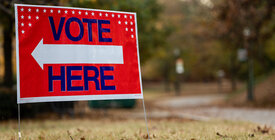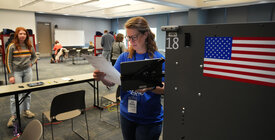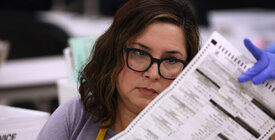Fact: The Uniformed and Overseas Citizens Absentee Voting Act (UOCAVA) ensures that U.S. troops and other citizens serving our country abroad can exercise their right to vote.
In 1986, President Ronald Reagan signed the Uniformed and Overseas Citizens Absentee Voting Act, giving military members and certain U.S. citizens living abroad the right to register to vote and cast an absentee ballot in federal elections. Without that law, troops serving our country, missionaries, aid workers, and other citizens living abroad could be disenfranchised.
There is a rigorous system of checks to ensure that only eligible U.S. citizens can vote from abroad. Among other steps, they must provide a residential address in the United States, and their signature to register.
UOCAVA voters cannot choose which state to vote in. They must vote in the last state in which they were last domiciled. Because they are abroad, they face additional obstacles to voting. We should do everything we can to guarantee that they can vote, not bash the system that allows them to do so.
Rumor: Bad actors can use the UOCAVA program to illegally register people to vote.
Conspiracy theorists spreading lies about noncitizens illegally voting have targeted the long-standing program that enables military members, missionaries, aid workers, and other overseas citizens to vote. Some have falsely claimed that one party can sway the presidential election by sending ballots to noncitizens living abroad.
• • •
We worked with Swayable, a research software platform that measures how effectively media content changes opinions, to determine what messages helped voters best understand the facts.
Suggested counter-messages based on our testing:
- U.S. troops and other citizens serving our country abroad have the right to vote.
The message above was found to be most effective in communicating the facts, though differences exist by region and demographic group. See Swayable’s dashboard to examine more detailed results, including other messages tested.



